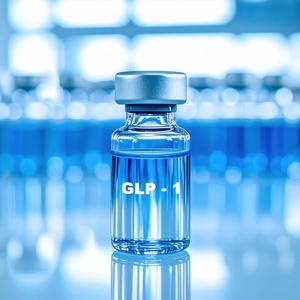FDA Orders Google-Backed Home Genetic Test Service 23andMe to Halt Marketing
The U.S. Food and Drug Administration (FDA) ordered Google-backed home genetic test maker 23andMe to “immediately discontinue” its Personal Genome Service (PGS) after failing to undergo proper agency approval for its marketing claims.
In a warning letter issued to the Silicon Valley company on November 22, 2013, Alberto Gutierrez, director of the FDA’s Center for Devices and Radiological Health, stated that 23andMe had failed to show the tests were safe or effective. Consequently, the agency ordered 23andMe to stop marketing its tests immediately, warning that erroneous results could cause customers to seek unnecessary or ineffective medical care.
23andMe launched its $99 saliva-based DNA test kit in 2007. The company promotes the tests as diagnostic for genetic diseases and asserts that the tests provide an indication of risk for complex conditions such as diabetes, coronary heart disease, and breast cancer. Additionally, the company suggests that the tests can provide warnings of potential interactions between genes and drugs, such as cholesterol-lowering statins and blood thinners.
According to the FDA, the test kits are designed to diagnose, mitigate or prevent disease, making them a “medical device” and requiring regulatory clearance under Section H of the Federal Food, drug, and Cosmetic Act. The FDA warns that customers may “self-manage their treatments through dose changes or even abandon certain therapies depending on the outcome of the assessment. For example, false genotype results for your warfarin drug response test could have significant unreasonable risk of illness, injury, or death to the patient due to thrombosis or bleeding events that occur from treatment with a drug at a dose that does not provide the appropriately calibrated anticoagulant effect.”
The FDA also cautions that false-positive results could cause consumers to undergo unnecessary health procedures. For instance, the agency notes that a use for which PGC is intended is the detection of mutations in BRCA genes that can signal increased risk for breast cancer. The FDA warns that the 23andME test could produce a false positive for such mutations, which “could lead a patient to undergo prophylactic surgery, chemoprevention, intensive screening, or other morbidity-inducing actions, while a false negative could result in a failure to recognize an actual risk that may exist.”
23andMe must now submit proof of the accuracy of the tests and information on the rate of false positives and false negatives. The FDA’s warning letter provided the company fifteen (15) business days to respond with an outline of actions the company is taking to address the FDA’s concerns. Warning letters are not legally binding, however, the government can take companies to court if they are ignored.
23andMe company executives previously stated that they first contacted the FDA in 2007, before launching their product. However, the agency did not take an interest in the technology until 2010, when it issued letters to several testing companies, warning that their products must be approved as safe and effective. The FDA stated that it has had more than “14 face-to-face and teleconference meetings, hundreds of email exchanges, and dozens of written communications” with 23andMe to discuss compliance. “However, even after these many interactions with 23andMe, we still do not have any assurance that the firm has analytically or clinically validated the PGS for its intended uses . . . .”
Company founder and Chief Executive Anne Wojcicki stated on November 26, 2013 that 23andMe had corresponded with the FDA and had submitted its first application for clearance in July 2012 followed by another submission in September. However, she acknowledged the firm had received feedback on the submissions and was behind schedule in its replies to the FDA.
23andMe Inc. issued a brief statement in direct response to the regulatory warning letter, asserting that the company’s relationship with the FDA is “extremely important to us and we are committed to fully engaging with them to address their concerns.” Subsequently, a 23andMe Inc. spokeswoman stated that the company will stop all television, radio and online marketing in response to the FDA’s directive.
The complete FDA regulatory warning letter ordering 23andMe to discontinue marketing its Personal Genome Service may be found here.
related services

Weight Loss Wonders, Legal Woes: The Price of GLP-1 Popularity ...

AI-Enabled Medical Devices Here To Stay? ...
About Drug / Device Law Blog
Baker Sterchi's Drug / Device Law Blog examines topics and legal developments of interest to the drug and device industry. Learn more about the editors, Paul Penticuff and Megan Sterchi Lammert, and our Drug and Device practice.
Subscribe via email
Subscribe to rss feeds
RSS FeedsABOUT baker sterchi blogs
Baker Sterchi Cowden & Rice LLC (Baker Sterchi) publishes this website as a service to our clients, colleagues and others, for informational purposes only. These materials are not intended to create an attorney-client relationship, and are not a substitute for sound legal advice. You should not base any action or lack of action on any information included in our website, without first seeking appropriate legal or other professional advice. If you contact us through our website or via email, no attorney-client relationship is created, and no confidential information should be transmitted. Communication with Baker Sterchi by e-mail or other transmissions over the Internet may not be secure, and you should not send confidential electronic messages that are not adequately encrypted.
The hiring of an attorney is an important decision, which should not be based solely on information appearing on our website. To the extent our website has provided links to other Internet resources, those links are not under our control, and we are not responsible for their content. We do our best to provide you current, accurate information; however, we cannot guarantee that this information is the most current, correct or complete. In addition, you should not take this information as a promise or indication of future results.
Disclaimer
The Drug / Device Law Blog is made available by Baker Sterchi Cowden & Rice LLC for educational purposes only as well as to give you general information and a general understanding of the law, not to provide specific legal advice. Your use of this blog site alone creates no attorney client relationship between you and the firm.
Confidential information
Do not include confidential information in comments or other feedback or messages related to the Drug / Device Law Blog, as these are neither confidential nor secure methods of communicating with attorneys. The Drug / Device Law Blog should not be used as a substitute for competent legal advice from a licensed professional attorney in your state.














